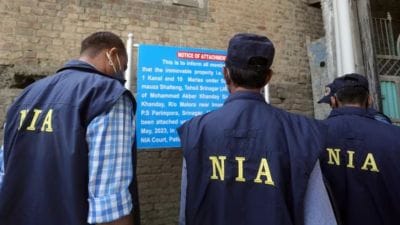Dont ignore other diseases: experts
The World Health Organisation has estimated that one-third of the global population will be affected by H1N1 as infectivity is high but the death rate associated with swine flu is less than 0.5 per cent.
The World Health Organisation has estimated that one-third of the global population will be affected by H1N1 as infectivity is high but the death rate associated with swine flu is less than 0.5 per cent. So while the city has witnessed 19 H1N1 deaths since August 3,a cross section of the medical community feels that panic response to the virus is not epidemiologically relevant and in fact other diseases require greater attention.
The apprehension and panic response of the community associated with swine flu is not epidemiologically relevant because as the virus multiplies the pathogenic ability may get reduced. The exposed population will get immunity over a period of time and it is likely that the mutation of the virus if and when it occurs may be mild, said Dr Sandeep Bharswadkar,technical consultant of Pune unit of Indian Medical Association and Global Fund for AIDS,Malaria and Tuberculosis.
There have been 37 deaths due to malaria in the state in the April-July period,said state epidemiologist A S Bhosale. There are pockets of dengue across the city mainly in Pimpri-Chinchwad he said,adding that Pune and Pimpri Chinchwad has seen 136 cases of dengue during the four months. There have been three deaths due to dengue in the state.
Dr P S Pawar,medical superintendent of Sassoon General Hospital,said cases of dengue and malaria have been consistently reported from January and one death had occurred due to malaria. In 2008,there were five deaths due to dengue,one due to leptospirosis and 10 due to malaria in the city,while in 2007 there were 28 deaths due to malaria and 10 from leptospirosis.
Additional district health officer Dr Sarita Gokhale said diarrhoea and gastroenteritis were of more concern in Pune rural areas. So far there were four epidemics with 132 patients suffering from gastroenteritis in Pune rural. There were two deaths this year due to gastroenteritis while there was one outbreak where 186 people had got diarrhoea this year.
Dr Renu Bharadwaj,deputy dean of B J Medical College and head of the microbiology section,said diseases like diarrhoea,cholera,malaria and tuberculosis have a higher mortality and morbidity rate than swine flu. As a city we need to observe hygiene and cleanliness, she said.
Dr Dilip Jagtap,in-charge of the Pune Municipal Corporations TB control society,said TB was a chronic disease and due to HIV infection,the immunity of the TB patients stood compromised. According to the latest figures of April 2007-April 2008,show there have been 240 deaths of a total of 4,044 TB patients in the city alone.
Private practitioners also express concern that outbreaks of gastroenteritis and diarrhoea are getting neglected with new infections like swine flu.
We need to ensure that each disease is given due weightage and a reporting system must be active especially as dengue and malaria crop up every year, said Dr Dilip Sarda,chief of Pune unit of IMA.
Dr A L Kakrani,Head of the Department of Medicine at D Y Patil Medical College,said doctors have already more than 25 cases of dengue in Pimpri while Dr Rajesh Gadia,consulting physician at KEM Hospital,said they have seen 75 cases of dengue in June and July with a majority being from Pimpri.







